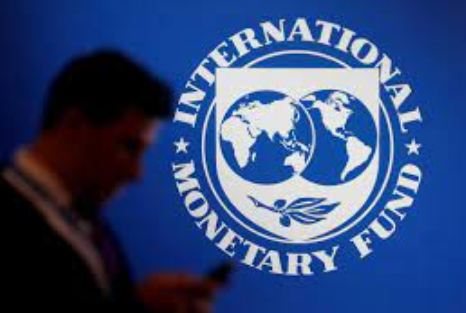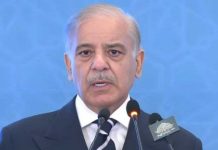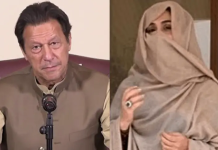Air Commodore Khalid Iqbal (Retd)
After nine arduous months of ping-pong with the International Monetary Fund (IMF), Pakistan has secured a Standby Arrangement (SBA) of a paltry $3 billion spread over nine months. During these negotiations, Pakistan kept teetering on the brink of default—an unprecedented agony for each and every Pakistani. Courtesy of political uncertainty, this SBA appears wobbly even before it could take effect. Moreover, the government’s commitment to continually implement reforms will be tested as it goes into elections that are due by October 2023.
Fitch Ratings and Moody’s Investors Service have warned of continued threats to Pakistan’s financial sustainability despite the SBA lifeline from the IMF due to its $25 billion debt liability duringthe ongoing financial year.According to the Bank of America Securities, Pakistan is facing an acute liquidity crisis in debt management, directly undermining its financial stability.With the newfound $3 billion, Pakistan’s total IMF borrowing will be $10.4 billion and it will become the fourth largest IMF borrower in the World. This calls for pulling the country out of the debt trap instead of trumpeting the approval of SBA.Until a post-SBA programme is agreed upon, Pakistan’s ability to secure loans from other bilateral and multilateral partners on an ongoing basis over the longer-term will be severely constrained.
As of now, the SBA seems to be busting at the seams. The IMF has objected over the recent supplementary grants and has demanded that the parliament should not approve these. The international lender has also pointed out that taxes have only 10 percent share in the economy — which is the lowest in the world — and its share should be jacked up to 13 percent to control deficit. It has further emphasised that the incumbent, as well as the caretaker and the upcoming elected governments, should faithfully follow the provision of $3 billion SBA for nine months.
Pakistan’s sovereignty is thinning out as IMF’s Pakistan Mission is directly engaging major political parties for their assurance to implement the SBA after the elections. Luckily, all prospective winners of the polls have assured their support.However, Michael Gahler, the head of the Election Observation Mission of European Parliament, has said that they see no signs of election in Pakistan this year.
IMF had asked Pakistan for assurances of $6 billion for external payments. However, Pakistan has gone an extra mile to give assurances of $8 billion. China will provide $3.5 billion to Pakistan, of which Islamabad would keep $2 billion in deposit, while the commercial banks of Beijing will provide the country with $1.5 billion. Moreover, Saudi Arabia and the United Arab Emirates will provide $2 billion and $1 billion, respectively. Pakistan will also receive $500 million from the World Bank in addition to the Asian Infrastructure Investment Bank’s $250 million. The $350 million pledged during the Geneva Conference will also be handed over.
It is alarming that the government has set a target to raise a record high debt-financing of Rs11.10 trillion from domestic banks in the first three months of the current fiscal year. The funds will primarily be used to pay off maturing old debt and partially finance the large fiscal deficit. The debt servicing costs alone exceed Rs7.3 trillion ($25.6 billion), representing half of the total budget spending and around 80 percent of the country’s expected tax revenues.
Pakistan first entered an IMF programme in 1958. It has since gone back to the lender another 22 times.It is important to note that in the last programme, or in around two dozen programmes prior to that, structural reforms were conspicuous by their absence.This is not the first time that we are in such a financial mess.This has happened in the 1990s, 2000s, 2010s, and in the 2020s, and it hasbeen a protracted collective failure of national leadership across the board. No government was able to withstand the pressure of traders, feudal lords and real estate tycoons. Hence, tax net could not be broadened. This, in turn, created a hazard, wherein the compliant taxpayers continue to bear the cost of non-performance by the country’s economic handlers.For the past three decades, various governments declared their intent a number of times to broaden the tax base by bringing those who do not pay their fair share into the tax net. However, nothing happened.
Securing short-term relief is not an end in itself;rather actual work has only begun. The economy cannot be fixed by just continuing to be in an IMF programme; it requires political will to take bold decisions.Nations never develop on loans as conditional loans impinge upon political and economic sovereignty of the country besides compounding woes of the masses.The people of Pakistan have had a bitter taste of such programmes as these were accompanied by preconditionsthat increased inflation to unbearable limits without improvement in the overall capacity and capability of the country to repay loans.
We are certainly in for a long haul. The onus lies on the present as well as future governments to enact and implement much-needed fundamental reforms to rescue the country from a perpetual economic turmoil. A collective national effort extending to 10-15 years is essential to re-rail the economy. Pakistan’s deliverance from loans requires a vision, unity, hard work and sacrifice. The national leadership needs to stand up to the occasion and inculcate a national resolve of ‘never again’.
After the signing ceremony ofthe SBA,Prime Minister Shehbaz Sharif represented the national sentiment in his comment: “I pray that this is the last IMF deal”. But this is easier said than done.
Air Commodore Khalid Iqbal (Retd) is Director National Security at Centre for Aerospace and Security Studies (CASS), Lahore Pakistan. He may be reached at [email protected]

















